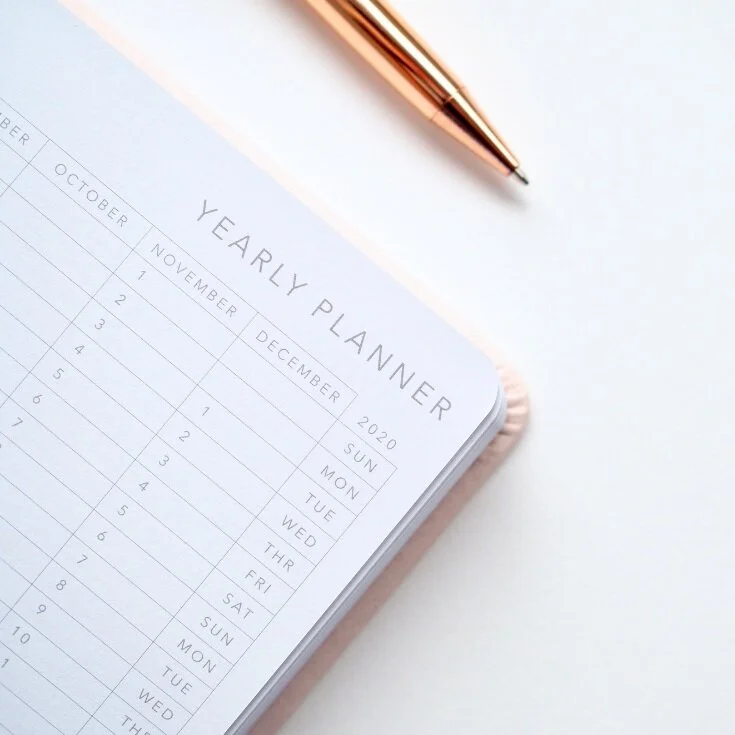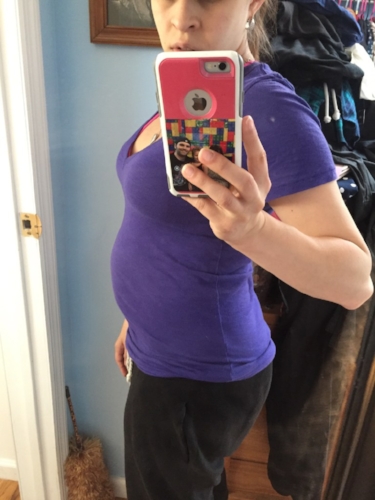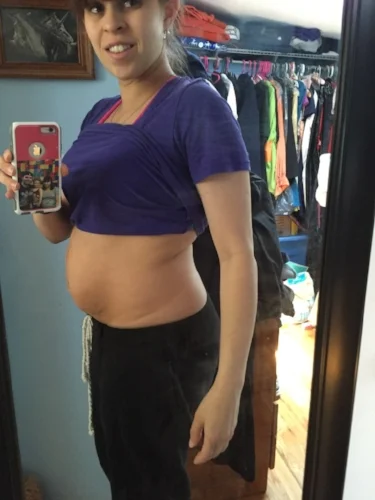So here we are are at 2.5 weeks post partum. While sleep is still less than abundant, everyone is adapting to the new schedule. Hailey is growing, and T is learning how to be a big brother. Some days are too exhausting to think about exercising and others I just want to jump back in the saddle and get me pre-pregnancy body back.
There are two important things to remember as you start to get back into your fitness regimen. The first is to start back slowly. Even on the days where you feel relatively more energized, it's important to remember that your body performed a momentous feet and it needs to recover. It's important to gradually increase your exercise regimen. You can plan it out. Start with walking, then maybe light yoga and then light weights. You can gradually increase intensity until you are back where you were pre-pregnancy and then beyond.
This is a time when you really need to listen to your body. You may feel fine and then end up pushing yourself too far. This can do more harm than good. Take things day by day. Remember you are running on reduced and oft interrupted sleep. The best thing is to eat well, get as much sleep as possible and slowly increase activity.
The second thing you must consider is your abs. This is probably the area you want to concentrate your efforts, but there is a lot to consider. First off, it takes a while for your uterus to shrink back to its normal weight. By four to six weeks, it should be close to its pre-pregnancy weight of about 2.5 ounces. This process is called involution of the uterus. So some of the excess bloat may be your uterus still not back in your pelvis.
Even after your uterus shrinks back into your pelvis, you may continue to look somewhat pregnant for several weeks or longer. That's because your abdominal muscles get stretched out during pregnancy, and it will take time – and regular exercise – to get your belly back in shape.
However, before you start packing in the crunches, there is another issue to consider. Diastasis recti. Diastasis recti is commonly defined as a gap of roughly 2.7 cm or greater between the two sides of the rectus abdominis muscle. This is common following pregnancy. Doing the wrong kind of ab exercises can increase the gap. In fact, crunches are one of the exercises you should not do if you have this problem. To check if you have diastasis recti, lie on the floor as if you were going to perform a crunch with your knees bent and feet on the floor. Lift your head off the floor and place your fingertips on the center of your abs to check for a gap. This is also something that can be check by your doctor.
The following are exercises that can help strengthen your ab muscles and reduce diastasis. Note that these exercises involve the pulling together of your ab muscles as opposed to crunches which push them out.
Core contraction - In a seated position, place both hands on abdominal muscles. Take small controlled breaths. Slowly contract the abdominal muscles, pulling them straight back towards the spine. Hold the contraction for 30 seconds, while maintaining the controlled breathing. Complete 10 repetitions.
Seated squeeze - Again in a seated position, place one hand above the belly button, and the other below the belly button. With controlled breaths, with a mid-way starting point, pull the abdominals back toward the spine, hold for 2 seconds and return to the mid-way point. Complete 100 repetitions.
Head lift - In a lying down position, knees bent at 90° angle, feet flat, slowly lift the head, chin toward your chest, (concentrate on isolation of the abdominals to prevent hip-flexors from being engaged),[6] slowly contract abdominals toward floor, hold for two seconds, lower head to starting position for 2 seconds. Complete 10 repetitions.
Upright push-up - A standup pushup against the wall, with feet together arms-length away from wall, place hands flat against the wall, contract abdominal muscles toward spine, lean body towards wall, with elbows bent downward close to body, pull abdominal muscles in further, with controlled breathing. Release muscles as you push back to starting position. Complete 20 repetitions.
Squat against the wall - Also known as a seated squat, stand with back against the wall, feet out in front of body, slowly lower body to a seated position so knees are bent at a 90° angle, contracting abs toward spine as you raise body back to standing position. Optionally, this exercise can also be done using an exercise ball placed against the wall and your lower back. Complete 20 Repetitions.
Squat with squeeze - A variation to the "Squat against the wall" is to place a small resistance ball between the knees, and squeeze the ball as you lower your body to the seated position. Complete 20 repetitions.
As for myself, I have started walking regularly and doing squats and non weighted arm exercises. I do kegels a few times a day and am starting to incorporate some of the above abdominal exercises. Below are a few pictures of my belly progress.
Here's a reminder of last time.
This is definitely a case of slow and steady wins the race.
The next update will probably be in a few weeks. A) so there is more progress and B) so we can get back to more time management organization type posts.
See you on Friday!
Cheers,
Emily















Loving my postpartum body does not come naturally to me. Here I share my feelings and what you can do about it to help accept your body.